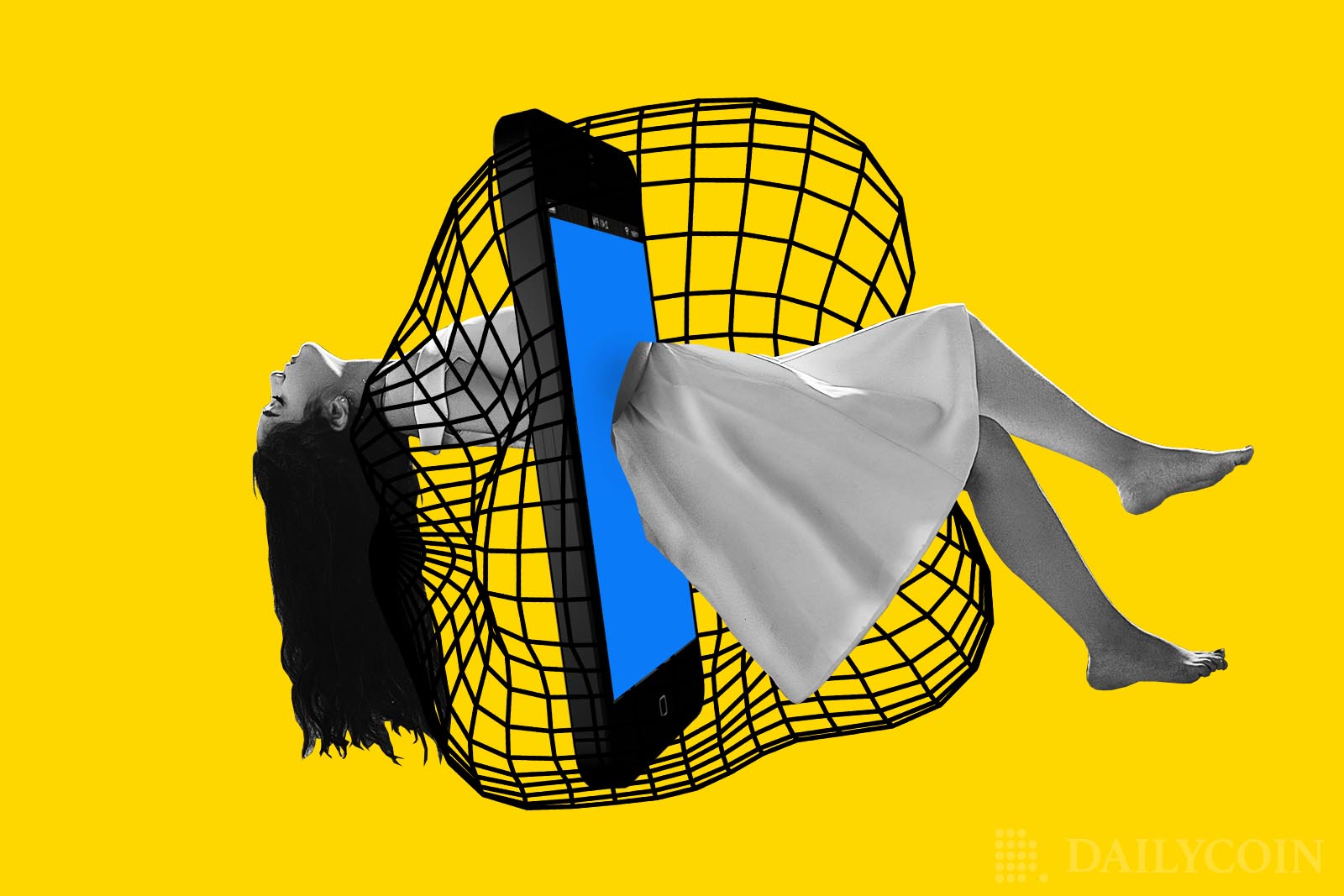
Social media plays a significant role in our everyday lives, and it has revolutionized how we communicate, interact, and even what we sometimes become on a digital and literal level. Today, more than half of the world has access to social media, and we all saw how it helped keep many people sane during the trying Covid-19 pandemic.
However, centralized control of major platforms like Facebook, Twitter, YouTube, and Instagram has resulted in several issues, such as data breaches, server outages, de-platforming, censorship, and privacy violations. These days, two major issues confronting the existing social networks appear to be intertwined: data protection and censorship of centralized social media platforms.
In a country like China, where internet and social media censorship is strict, the narrative is government-controlled. As a result, people undergo self-censorship, while some find creative ways to get around the censorship by using emojis to express what they truly feel.
Sponsored
To combat these issues, developers are building social media networks on decentralized networks like Ethereum and giving the power back to users rather than to corporations and governments alike.
Among several things, decentralized social networks can fix many of the problems of traditional social networking platforms and improve users’ overall experience. That’s why in this piece, you’ll get the full deets on decentralized social media, how it works, and why it matters today and in the future.
What Is Decentralized Social Media?
Decentralized social media is an open-source, blockchain-based alternative to traditional and centralized social media platforms such as Facebook, Twitter, YouTube, and other centralized social media platforms you can think of.
Decentralized social media essentially operates on servers that run independently, implying that they are not in the hands of a corporation or government as with most centralized alternatives. Instead, their users make all the decisions surrounding its operation and networking.
Perhaps you’ve heard of cryptocurrency and NFTs or “decentralization” and its role in crypto and NFTs. Blockchain technology is the driving force behind decentralization, a technology that has become very popular and highly in demand.
Blockchain allows social media users to experience a more secure, transparent, decentralized social network with no central administrator or point of control. By leveraging blockchain technology, decentralized social media platforms are available as decentralized apps (dApps) and are resistant to attackers, censorship and undue control, and third-party interference.
This type of social platform further ensures that your data is spread out between several different independent nodes within the underpinning network rather than being held by one single entity or multiple entities, depending on how many social media platforms you use. So, how do these revolutionary decentralized social media platforms work?
How Does Decentralized Social Media Work?
Decentralized social media platforms are a group of decentralized applications (dApps) powered by smart contracts and deployed on the blockchain. The contract code serves as the backend for these social media apps and characterizes their business logic.
All traditional social media platforms rely on databases to store user information, program code, and other forms of data. Sadly, this creates single points of failure and introduces significant risk. For instance, Twitter servers went down in July this year, and Facebook infamously went offline for hours last year, cutting off users from the platform.
Moreover, decentralized social networks operate on a peer-to-peer network comprising thousands of nodes around the globe. Even if some nodes fail, the network will keep running uninterrupted, making applications resistant to failures and outages.
Using decentralized storage systems like the InterPlanetary File System (IPFS), social networks built on Ethereum can protect user information from exploitation and malicious use. No one will sell your personal information to advertisers. Even hackers will not be able to steal your confidential details.
Monetization is also tied to how these social platforms work. Many blockchain-based social platforms have native tokens that power monetization in the absence of advertising revenue. Users can buy these tokens to access certain features, complete in-app purchases, or tip their favorite content creators.
So, what does decentralized social media truly mean to users, and what does it really offer?
Pros of Decentralized Social Media
1. High Security
The risk of network malfunction or failure due to DDoS attacks is greatly reduced as decentralized social media networks use hundreds or even thousands of different servers or “nodes” to function. In addition to greater security, users also enjoy an added layer of anonymity and privacy, both of which are becoming harder and harder to come by when doing anything online.
2. Increased User Control
Decentralized social media also provides users with increased control, which is something centralized social media platforms offer little to none of. In fact, it’s one of the core concepts driving blockchain technology and today’s emerging decentralized social platforms. With decentralized social networks, users control their data and experience because there’s no central authority dictating the rules.
3. No Censorship
Traditional social media platforms usually censor what can be said, shared, or written. Countries like China and North Korea highly censor users and take away their digital freedom. On the other hand, decentralized social media eliminates the “middleman” and gives content creators direct ownership and control of their data and content. They can also engage with followers, fans, customers, and others directly, with only a smart contract standing between them.
4. Monetization for Creators and Users
Another important aspect of decentralized social media is equitable monetization for users and community members. Unlike the imbalanced monetization schemes of traditional social media, decentralized social networks promote social earning through native tokens serving as the equivalent of Bitcoin, Ethereum, and other major cryptocurrencies. This is a game changer for content creators who want to explore other means to make profits and interact with their fan base.
5. Reduced Downtime and Outages
As dApps running on the Ethereum network, which is sustained by a global, peer-to-peer network of nodes, decentralized social networks are less susceptible to server downtime and outages. Remember the YouTube story where the social media went offline alongside Docs and Gmail? That wouldn’t happen if it were a decentralized social media platform.
Cons of Decentralized Social Media
1. Malicious Users
The major highlighted risk of decentralized social media platforms is that malicious individuals or users can exploit how they operate. It is a very attractive concept to set up a decentralized social media network that gives power back to the users, but things could go awry quickly.
Since decentralized social media platforms let users do whatever they want in their networks, they become an easy target for motivated parties whose aim is to wreak havoc. In centralized networks, companies can easily remove such malicious content and people. However, in decentralized networks, these malicious parties leverage the immutability of the blockchain to keep their posts on the internet forever.
2. Lack of Moderators
Just like their centralized counterparts, decentralized social media networks struggle with a lack of moderators. Many users still post misleading, false information or offensive content in different communities. The lack of moderators will lead to such posts staying up for long periods of time and influencing unknowing readers.
3. Unappealing User Interface
Users want an attractive and user-friendly interface. Interfaces shouldn’t be complicated to use at any point in time. However, many decentralized social media networks have user interfaces that are unappealing and not user-friendly compared to their centralized counterparts.
4. Difficulty in Keeping Users
The bigger the user base of any social media platform, the more adaptable it becomes. Unfortunately, decentralized social media networks have fewer users than centralized systems. They struggle to retain users due to the inherent nature of social media and other reasons.
Many users also lose interest in decentralized social media networks after some time as the novelty fades. Eventually, they go back to centralized social networks where they are known, have a sizable amount of friends, and are engaged in what’s happening with millions of people.
Top Decentralized Social Media Platforms that Already Exist
Now that you already know a lot of the advantages that decentralized social media platforms offer, let’s look at a couple of decentralized alternatives to famous centralized social media platforms.
1. Facebook Alternative – Minds, Diaspora, MeWe
2. YouTube Alternative – LBRY, D.Tube, PeerTube, Dlive
3. Instagram Alternative – Karma (Mobile-only app)
4. Reddit Alternative – Aether
5. Twitter Alternative – Mastodon
There are more than 10 decentralized social media platforms in operation. Others include Steemit, Twetch, Lens Protocol, and Sphinx.
Why You Should Care
Centralized social media users all over the world are complaining about how much control major platforms have over them including their skewed algorithms, lack of privacy, censorship, and more.
The solution to those problems, however, lies in utilizing decentralized social media platforms. Some decentralized social media networks even reward users with cryptocurrencies for contributing to the platform. However, decentralized social media networks have some drawbacks that should be worked on to entice more users.
Find out more about social tokens and what they are used for:
What Are Social Tokens and How Are They Different from Governance Tokens?
Read more on Only1’s attempt to bridge the gap between social media and DeFi:
Only1 Wants to Bridge the Gap Between Social Media and Decentralized Finance
